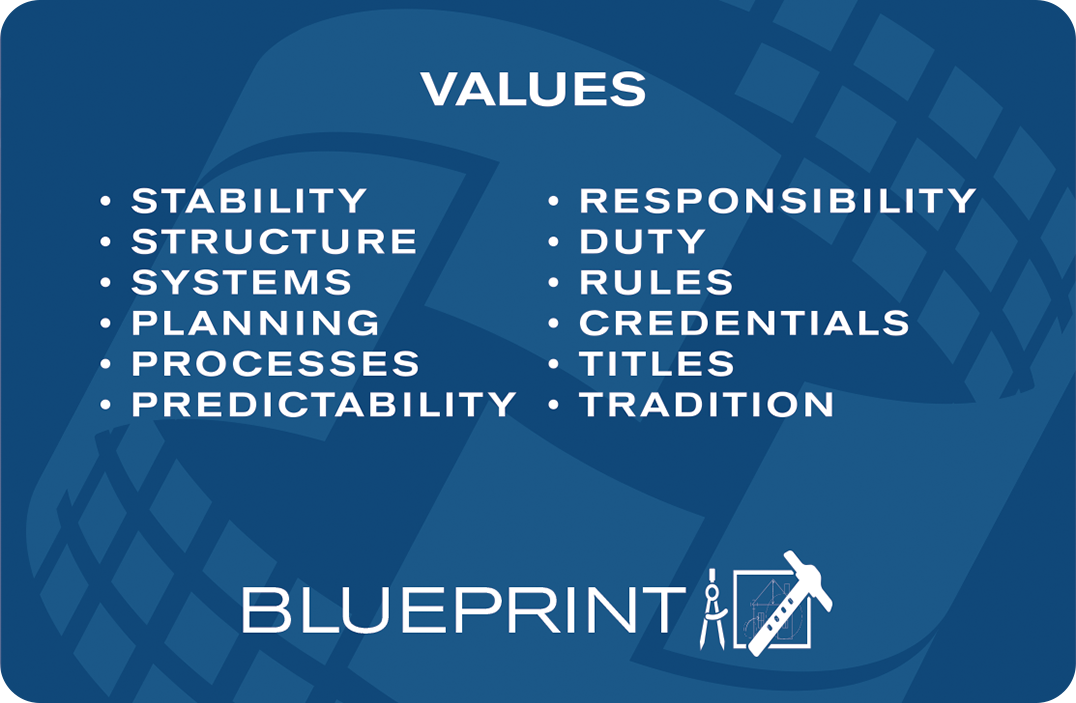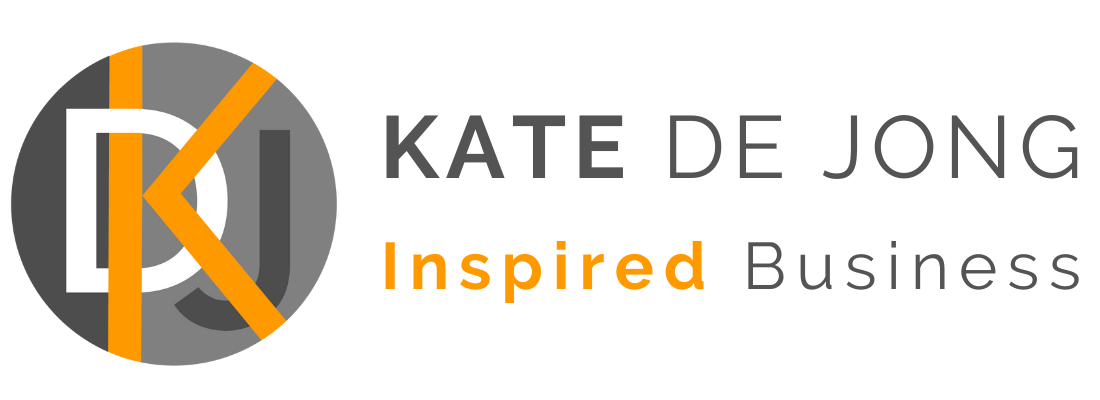If you own your own business, you’re in the business of marketing and selling.
“The ability to sell is the number one skill in business.
If you cannot sell, don’t bother thinking about becoming a business owner.”
– Robert Kiyosaki
Thankfully, the ability to sell is something that can be learned, which is comforting for business owners to know given that it’s so critical. I’ve completed dozens of different selling courses and programs over the years, but there have been few that I would refer to as a ‘game-changer’—until I found the B.A.N.K Personality Coding System.
Discovering and learning the B.A.N.K Personality Coding System has allowed me to:
- Increase my sales conversion rate consistently from around 60% to more than 90%.
- Produce powerful marketing messaging and assets that convert.
- Speak the language of my clients so I can work with them more effectively.
- Develop more fruitful relationships and strategic partnerships that benefit my business.
The use of personality science in selling is not new. Personality science itself is ancient, with Hippocrates (460 BC) being the first that we know of who documented four distinct patterns of human behaviour.
However, this is the first time that personality science has been applied to selling to understand what makes people buy.
So what is the B.A.N.K Personality Coding System?
Developed by Cheri Tree at Codebreaker Technologies in the USA, the B.A.N.K. Personality Coding System is an easy-to-use personality typing system that predicts decision-making behaviour based on your prospect’s deeply held values, ideals, and worldview.
B.A.N.K helps you understand why people buy.
And we’re all different when it comes to our motivation for making buying decisions.
I’m sure you can recall a sales conversation where you’ve been able to easily build rapport and trust and the conversation flows easily. As a result, your prospect wants to buy from you. It’s likely that your prospect was similar to you and you were speaking their language.
On the other hand, you would have experienced a sales conversation where there’s a disconnect and no matter how you try to navigate the conversation, you just can’t seem to connect and as a result, they say ‘no’ to working with you. I wrote about a time like this when I lost a big deal in one of my articles: The Powerful Lesson I Learned from Losing the Best Deal Ever.
The B.A.N.K system helps you understand why that happens and gives you a tool to make sure every sales conversation is a fruitful one.
You’ve probably heard the saying “Selling is a numbers game”
Well, this statement simply isn’t true. You can significantly increase your sales conversion rate by learning to speak the language of your prospect.
There are four personality types in B.A.N.K Codes: Blueprint, Action, Nurturing, and Knowledge. I’ve provided an overview of each one for you below. Each one of us has a ‘B.A.N.K code’ which is the order of the different values systems that are most important to us.
There are 24 different B.A.N.K. codes possible from four different value sets (shown below).

Use B.A.N.K’s Artificial Intelligence to ‘Crack the Code’ of your customers so you can speak their language
The great news is that you can use B.A.N.K’s artificial intelligence (AI) technology to ‘crack the code’ of your prospect before meeting with them, so you can speak to them in their language from the get-go to build rapport and genuine connection.
You can also crack your own code by going to this link.
To help you start understanding the different primary personality types, I’ve provided an overview below.
BLUEPRINT — ‘Inside the Box’
The first BANK code is ‘Blueprint’. These personality types value responsibility, planning, and structure. They’re usually specific with their actions and think things through before making decisions. See below for guidance on how to deal with a customer who leads their code with Blueprint.

Typical BLUEPRINT Behaviours
- They expect everyone to follow the rules and regulations.
- They need people to keep their word.
- Their focus is on minimising risk.
- They love to set up and implement predictable systems.
- They trust proven authority.
- They see everything in the world through the lens of right and wrong.
- They learn best through memorising, recall, and drill.
- They appreciate agenda-driven, efficient meetings that start and end on time.
- They work best with systems, routines, and procedures.
- They learn from past mistakes and proceed with caution.
- They don’t appreciate spontaneity or unplanned visits.
What to do when meeting or working with a BLUEPRINT
- Be well-organized and show that you are organised in the way you work.
- Go above and beyond to show respect.
- Greet them with a traditional handshake (no high fives, hugging or over-the-top gestures!)
- Act professionally.
- Demonstrate a system for success.
- Present your offer in a way that is low- or no risk to them—blueprints don’t like risk and they’ll do everything to minimise it.
- Acknowledge their position, credibility and accomplishments.
- Provide full disclosure of costs and timelines and never go over budget.
- Give them access to special discounts or savings incentives. They love a good bargain.
- Show up on time for appointments—never show up late to an appointment with a blueprint, it will be a no-deal from the get go!
- Show them your appropriate credentials for their field of work.
Deal-breakers for a BLUEPRINT. Don’t do this!
- Don’t be late to appointments or be late with deliverables.
- Have no structure in your process or approach.
- Make up your own rules or have no regard for the rules.
- Display informal or rude behavior or be insensitive to surroundings.
- Interrupt them or make unscheduled calls or visits.
- Fail to acknowledge their perspective or point of view.
- Use aggressive sales tactics or behaviors.
- Set unrealistic expectations or offer false promises.
![]()
ACTION — ‘Outside the Box’
Action types care about freedom, opportunity, and excitement. They’re free spirits. If you were to pitch a product to them, you’d want to demonstrate how it’d help them get ahead in life or elevate them. You also might tell them about how your product will give them greater independence in their lives.

Typical ACTION Behaviours
- They negotiate skillfully and look for their own win.
- They’re optimistic and act on instinct.
- They’re competitive and have a propensity for sports and entertainment.
- They love beauty, status and anything aesthetically pleasing.
- They recognise and go after opportunity.
- They’re always looking for a better way to do things.
- They rebel against rules, routine and structure.
- They takes risks and love getting things done.
- They’re entrepreneurial and like to lead.
- They learn best through hands-on methods: “Show me, don’t tell me”.
- They don’t like boredom or waiting.
- They don’t like abstract ideas, excessive details, and useless theory—get to the point quickly.
What to do when meeting or working with an ACTION
- Where possible, show your connections to celebrities, business executives, or other high net-worth individuals.
- Wear or carry high-end fashion accessories.
- Paint a picture of a dream lifestyle that they can achieve through working with you.
- Name other successful people you have worked with.
- Greet them with enthusiasm. They love high fives and other enthusiastic gestures.
- Notice and compliment their fashion or style.
- Convey a sense of urgency.
- Give them access to VIP experiences.
Deal-breakers for an ACTION. Don’t do this!
- Show that you don’t care about style or your outward appearance.
- Provide too much detail or get into the minutia.
- Lack confidence and courage.
- Give the impression you don’t have relationship capital or a sphere of influence.
- Fail to recognize them for their achievements.
- Be low energy or not engaging.
- Lack the ability to motivate and inspire.
- Come across as cheap or lacking generosity.
![]()
NURTURING — ‘Recycle the Box’
These are the caregivers. Nurturing personalities focus on relationships, authenticity, and personal growth. To relate to a nurturing personality, you need to demonstrate your good intent. They’re able to sniff out dishonesty and greedy sales pitches.

Typical NURTURING Behaviours
- They dislike inauthentic or fake people.
- They enjoy training, motivating, and coaching others.
- They need interaction with people, groups, and teams.
- They seek deeper meaning beyond material possessions.
- They show appreciation easily and in many ways.
- They avoid conflict, contention, and excessive competition.
- They’re genuine, kind, and thoughtful.
- They’re on a quest for self-actualization and want others to do the same.
- They believe in the greater good of people.
- They support and empower others to be their best.
- They’re empathetic and intuitively understand the needs of others.
- They’re here to positively impact other human beings.
What to do when meeting or working with a NURTURING
- Give them a warm personal touch or energy.
- Connect with them over a common background, shared interest, or mutual experience.
- Go above and beyond to show thoughtfulness and gratitude.
- Show you’re purpose-driven, not money-driven.
- Provide opportunities for charitable causes.
- Show you’re passionate about the things that are important to them (if you are of course—be genuine, they can sniff out disingenuity!)
- Create a sense of community so they can feel connected.
- Try to understand them as a person.
- Introduce them to others on your team so they feel a sense of belonging.
- Ask them questions about their personal story (e.g., family, vocation, hobbies).
- Be friendly and approachable.
Deal-breakers for a NURTURING. Don’t do this!
- Show that you care more about the money or making the sale than about them personally.
- Be rude or obnoxious.
- Be egocentric or lack humility.
- Come across as inauthentic.
- Forget important personal details (birthday, anniversary, etc.)
- Fail to demonstrate high integrity or moral standards.
- Show you don’t care about others or a sense of higher purpose.
![]()
KNOWLEDGE—’Engineer the Box’
Knowledge-focused personalities find passion in intellectual substance, in the mastery of their craft, comprehending the big picture, and in perceiving the rationality behind statements. For these personalities, you need to lace your sales pitches with analysis and facts. They need to know your claims are credible before making the decision to purchase.

Typical KNOWLEDGE Behaviours
- They trust research, facts, analysis, logic, and reason above all.
- They’re precise in their speech and they notice contradictions.
- They have a need for data and meaningful interpretation of it.
- They don’t like to make a decision quickly, they need to do their own research in their own time before deciding.
- They easily learn abstract ideas and can process several issues at the same time.
- They dislike rote learning without understanding.
- They resolve conflict logically and rationally, without emotion.
- They use diagrams and models to communicate concepts.
- They can easily recognize truths and untruths.
- They dislike chitchat and instead seek conversations with substance.
What to do when meeting or working with a KNOWLEDGE
- Display a deep understanding of your subject matter.
- Be prepared with supporting information to back up your claims.
- Give them enough information to make well-informed decisions.
- Approach everything logically.
- Offer a new perspective.
- Be an expert in your field and show that you master your craft.
- Provide accurate facts and figures.
- Demonstrate a deep respect for wisdom and life experiences.
- Come across as smart speak intelligently.
Deal-breakers for a KNOWLEDGE. Don’t do this!
- Come across as ignorant, arrogant, or unintelligent.
- Have no data, bad data, or made-up data.
- Attempt to placate a situation and not deal with reality.
- Underestimate or insult their intelligence.
- Disregard their opinion or thought processes.
- Show that you lack experience or expertise on the subject matter.
- Be defensive or debate based on emotion.
- Not giving them time to process information or do their own research.
- Nonsensical small talk or conversations that lack direction or purpose.
When you’re armed with your customer’s code before engaging with them, you’ll find that your sales or work conversations proceed so much more smoothly!
To inquire about access to the B.A.N.K. artificial intelligence so you can crack your customer’s codes, reach out to me direcly at [email protected].
And to crack your own code, go to this link.
I hope you found this helpful! If you’d more information, please reach out.
In service to your success,
Kate De Jong, PhD
Inspired Business
Business & marketing coach for small business owners
[email protected]
katedejong.com
0424 176 658


 Kate De Jong is a business and marketing strategist for start-ups and small business owners who want to grow their business with ease. Kate is a bestselling author and a Chief Executive Women award-winner for women in leadership. Formerly a consulting engineer for more than fifteen years, Kate left her engineering career in 2012 to pursue her passion and zone of genius—entrepreneurship and marketing — and has never looked back!
Kate De Jong is a business and marketing strategist for start-ups and small business owners who want to grow their business with ease. Kate is a bestselling author and a Chief Executive Women award-winner for women in leadership. Formerly a consulting engineer for more than fifteen years, Kate left her engineering career in 2012 to pursue her passion and zone of genius—entrepreneurship and marketing — and has never looked back!